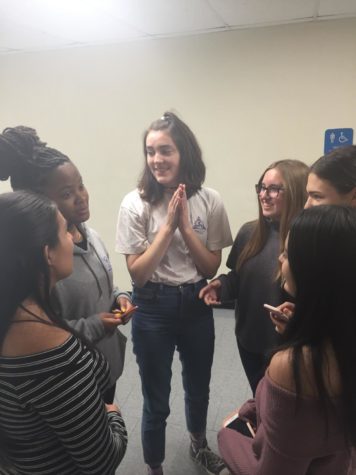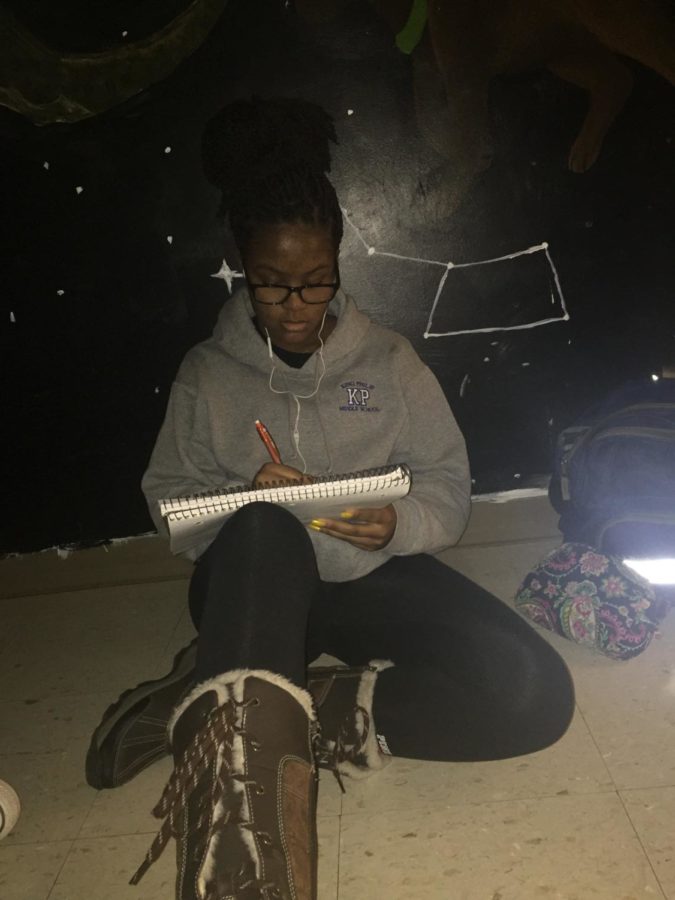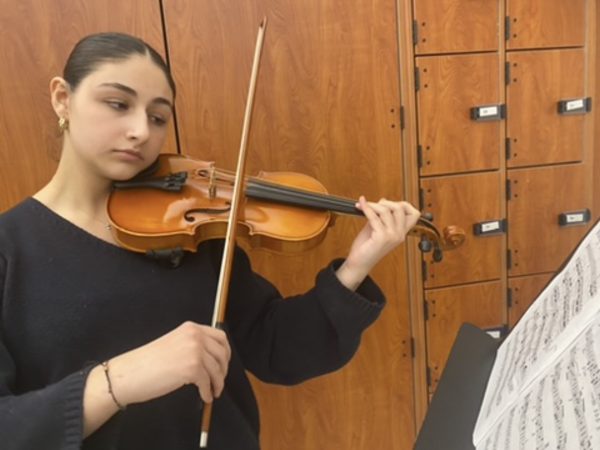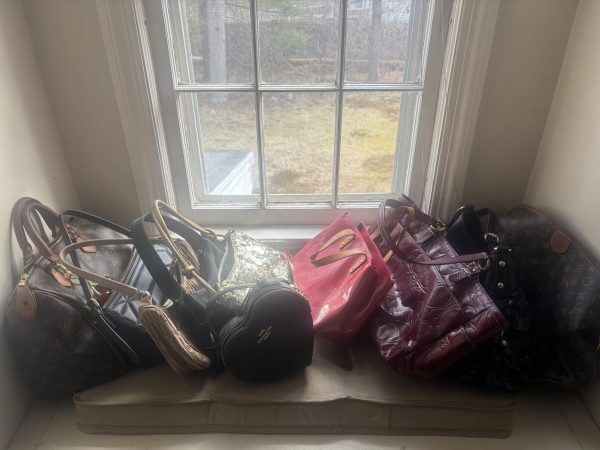Dear Extroverts
Introvert sitting alone enjoying music while working
Are you an introvert or an extrovert? Either way, you’ve probably felt the diversity between the two, especially in an atmosphere as socially reliant as high school. In fact, the diversity amongst introverts and extroverts is obvious even at our school: Hall High School. To clarify, an introvert is a person who is generally perceived as a shy, reticent person while an extrovert is a person who is generally perceived as an outgoing, overtly expressive person. After social gatherings, introverts tend to feel exhausted while extroverts feel more energized. When we interviewed some of the students, we found out that most of the extroverts believed that introverts are extremely quiet and just disliked by people in general. As your fellow introverts, we want to show you that not all introverts are as inhospitable as they’re perceived.
A common belief society has obsessed with when describing introverts is that they’re lonely and reserved, while extroverts are social butterflies that are outgoing and positive. As a matter of fact, society pressures us to be extroverts, persuading our misinformed minds that it’s better off to be an extrovert. If you’re an introvert, you must be alone. At least, that’s what extroverts think. An extroverted student from Hall High School even said, “Introverts don’t really like being around and with people, so instead they isolate themselves.” According to a couple of the extroverted students we interviewed, they avoid socializing with introverts because they feel that introverts enjoy being by themselves and they want to avoid the awkward vibe that many people receive from introverts.
As introverts, let us assure you that this is not the case. Just because we tend to be more silent thinkers, doesn’t mean we don’t have anything to say, or that we’re lonely and enjoy the feeling of ‘isolation’. We’re not lonely: but don’t take our word for it, take Lauren Olkin’s. Lauren is a senior at Hall High School and falls within the 16-50% of the population that is also introverted. We asked her whether she felt lonely as an introvert, and she responded, “No, society kinda makes introverts seem lonely by making everything a social event. Collaborative group work in a classroom that affect our grades, homecoming and even prom, they’re all events extroverts host.”. Lauren made a good point; these events were designed for extroverts to excel at. So how exactly are introverts supposed to survive in a world fabricated by extroverts?
Knowing this, it’s no surprise to understand that extroverts are an essential part of our society. After all, how could our society function without extroverts? As a result, there are many introverts who would simply prefer being an extrovert. It’s even seen here at Hall High School! A senior here at Hall, who wishes to remain anonymous, admits to being introvertive when he was younger. To put it simply, when he was younger he was more shy and eventually evolved into a extrovert. So the que

Group of friends
stion to be asked about his situation is “what exactly initiated this dramatic change?”. He explains this by saying, “I think that being an extrovert is a little better than being an introvert because it is easier to socialize with people. Being an extrovert also helps me with the career that I wish to pursue after high school (acting).”. When he explained this to us, we began to further understand the differences between introverts and extroverts. It made completely perfect sense as to why he evolved out of his introvertive qualities, even going so far as to say, “I’m a completely different person. The me from before and me now are two completely different people.”
This made us wonder, would an introvert have any sort of chance at some career as boisterous as acting? The obvious conclusion we originally made was no, but after listening to his situation, we began realizing we could be wrong. What if an introvert possessed some extrovert qualities, and yet still didn’t quite classify themselves as an extrovert? If this was the case, did it really matter whether you are or aren’t an extrovert?
To all those extroverts reading this article, we challenge you to question how exactly you perceive introverts. Are they book-lovers? Are they lonely? Are they ‘small’? It’s silly for society to put labels on people’s personality types based on whether they feel tired after an exhausting night with friends or energized, or whether they talk more than keep to themselves, and especially to put a big red ‘X’ on the label of introverts and a giant green check on extroverts. Us introverts are changing; the 16-50% of the population of us, are challenging you extroverts to change your biased views and we hope that eventually society understands that maybe the charisma of idea’s matter more than a leaders gregarious charms.






